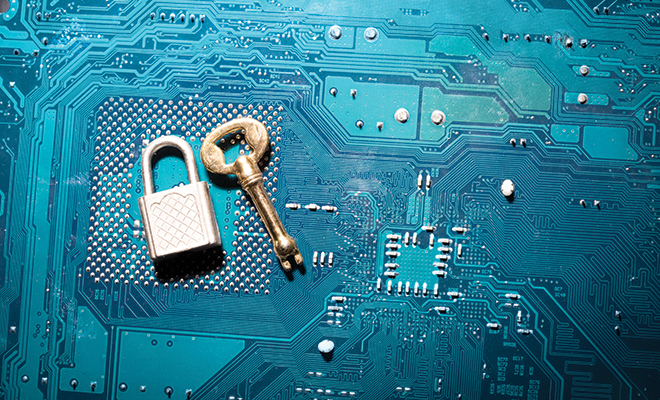
No Hacking Zone: Keep Your Business Data Safe
The Russians allegedly attacked the Democratic Party headquarters. The Chinese led cyber attacks directed at U.S. companies. Target, Home Depot, Yahoo, Premera, Sony, JP Morgan, eBay, the IRS and Twitter accounts have been hacked. As an executive, what can you do to keep your personal information and that of your clients from being compromised?
Hackers are trying to steal customer credit card numbers, user passwords, internal documents, trade secrets, proprietary technology and emails. Then they publish their information or hold it hostage. The most important thing you can do to protect yourself and your data, according to Andra Zaharia, communications and cyber security specialist, is to have at least two copies of your files backed up, one on a cloud server and one on an external hard drive.
Basic Steps
The average computer-savvy person knows the basic steps: update devices and software promptly; don’t give out your password; change passwords often. Download programs from reputable sites only; use secured wireless networks; log out of accounts when you’re finished, use reliable USB ports to charge your phone and devices and install antivirus software on your computer. These are fairly simple preventives steps, and they will go a long way to preventing a disaster on your personal devices, but how do you protect your business?
These steps probably won’t protect a business if it is under attack by serious hackers. An organization’s reputation is of paramount importance. The more diverse and connected the organization is through using diverse technologies, the easier it is for information to be misappropriated or compromised. Being aware of what constitutes the organization’s critical data, whether it is a new product design, a manufacturing process, a negotiating strategy or sensitive personal data, helps mitigate the risk and allows the organization to respond to and recover from problems when the organization is under attack.
Management
Cyber security experts believe that cyber security needs to be a concern of the company’s leadership and not just the IT department. Management must take a broader view of the problem and make sure that the whole organization, its personnel, its associates, its networks and supply chains are evaluated and protected. Only then can the business evaluate the company’s risk and take steps to prevent an invasion.
Implementing cyber security is not implementing a checklist of items to be done or steps to be taken. Organizations need to go beyond mere compliance and address the possibility of an unexpected attack. Compliance addresses currently known vulnerabilities but doesn’t prepare for new threats or stop sophisticated adversaries. By using a risk-based approach, the organization responds with a more comprehensive and cost-effective management strategy.
Ransomware
One of the most evil attacks made by hackers in recent years is the use of ransomware. With ransomware, hackers use malware programs that hold the data hostage. An ad pops up stating that unless you pay a nominal sum, usually around $500, for a decryption key, your personal data will be lost. Frequently, the hackers use their skills to test out the latest versions of their malware on their victim’s home computers before they move on to lusher targets such as police departments, schools and hospitals, where the fee is much higher.
There are two types of ransomware: one type encrypts your files and the other one locks you out of your operating system. Ransomware affects computers as well as servers and cloud-based file-sharing systems.
Payment is required in untraceable Bitcoins. Usually the ransom payments must be made in a short period of time or the data is lost forever. If your files are backed up, you can avoid many problems associated with ransomware.
Conclusion
Ethics and morality don’t exist for these hackers. Starting in 2014, hackers began selling their products on the deep web complete with dashboard and instructions on how to install the Bitcoin payment on the server.
If you are just an average Jane, rest assured that serious hackers won’t bother you; you simply aren’t worth their time and energy. However, your anonymity won’t stop the average cyber criminal who purchases malware on the deep web from holding your data hostage. The more prominent you are and the more money your business makes, the more susceptible you are to hacking by serious hackers. Consult with professional risk management organizations to minimize the impact of cyber attacks on your business.
Professional cyber security experts, the FBI, the CIA and private security firms are constantly working to decrypt ransomware and its variants with a degree of success. There are ransomware decryption tools available, but with the multitude of ransomware products, it is best to leave the recovery of data in the hands of experts.
Make your networks as secure as possible, and maybe, just maybe, you won’t be seriously harmed when you are hacked. And remember, “The best protection is always a backup!” says Zaharia. ■
Sources: quora.com, referenceforbusiness.com and weforum.org.







